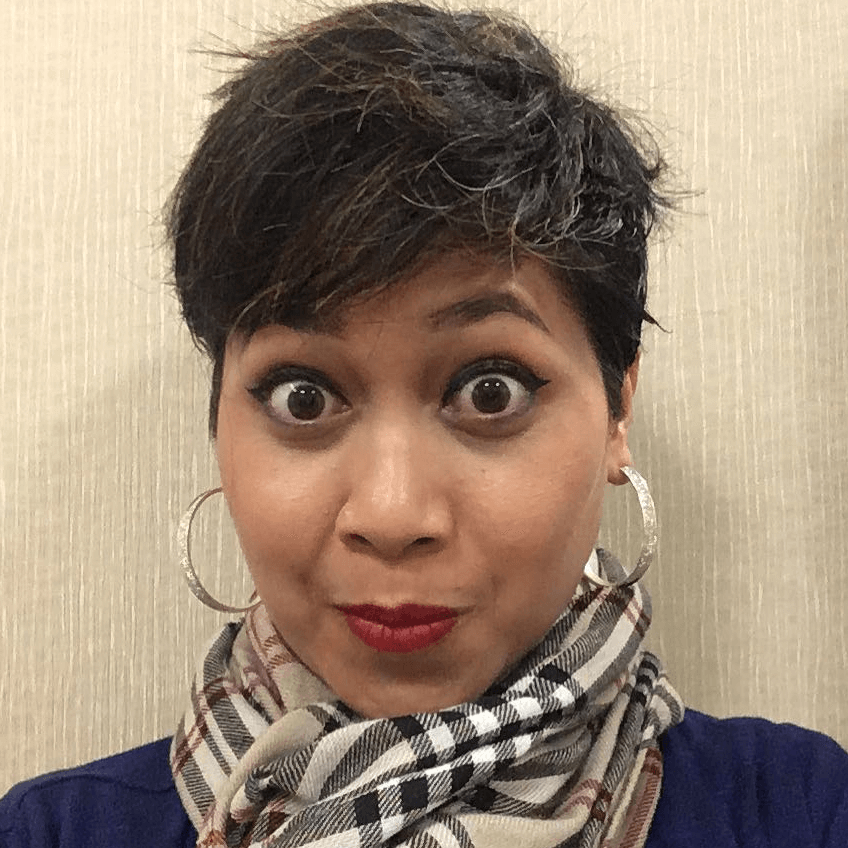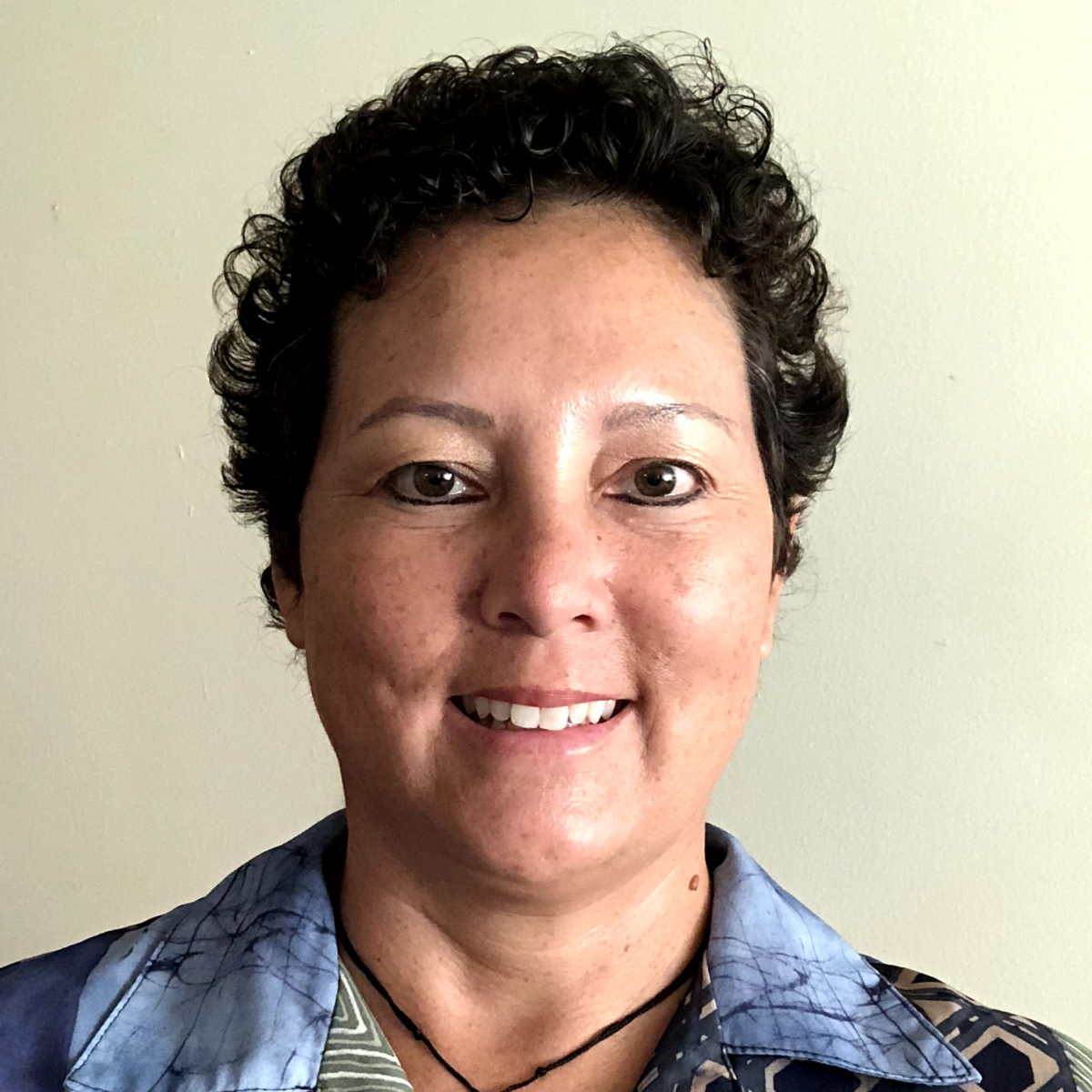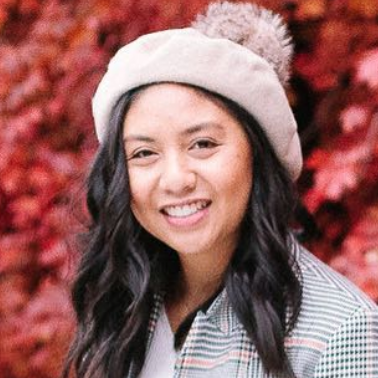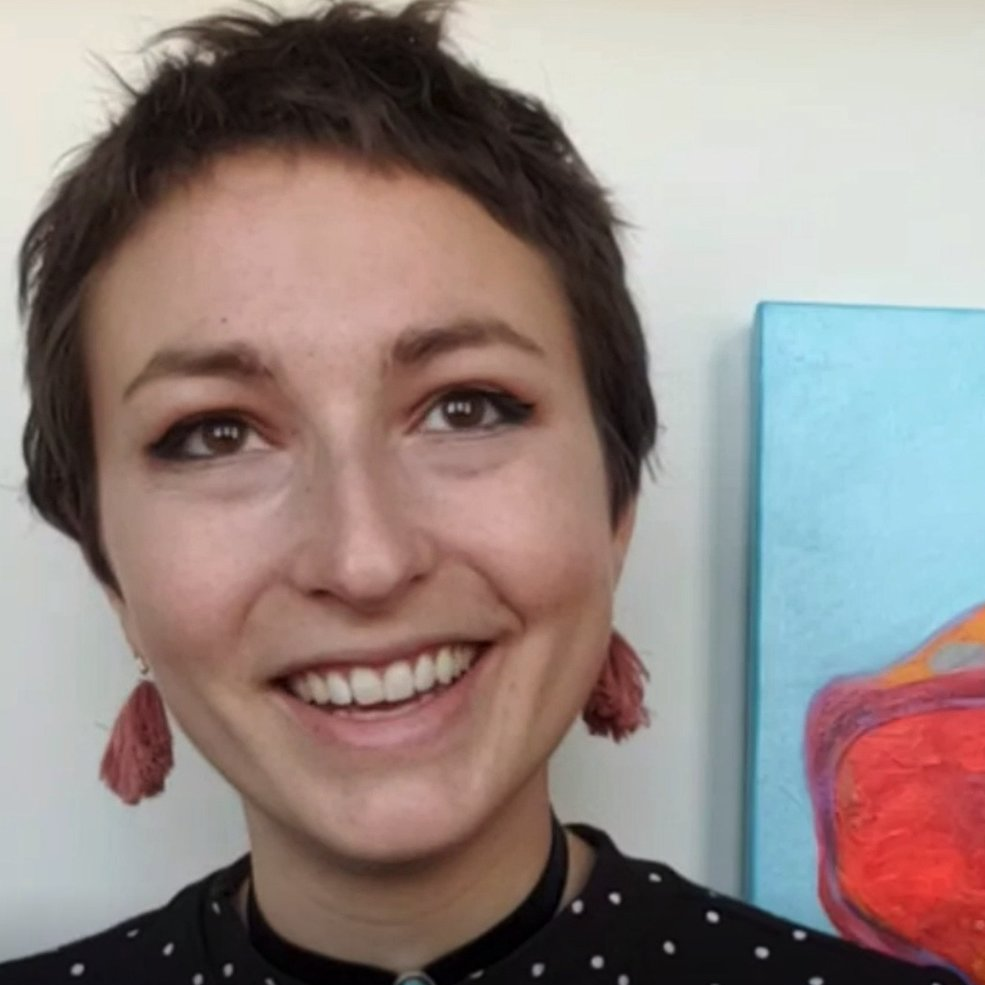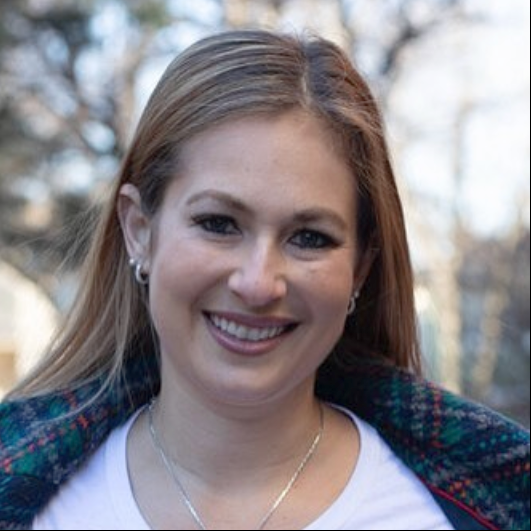Mental Health Care is Always Vital Care: Dana’s Stage 4 IDC Breast Cancer Story
A clinical psychologist, wife, and mother of two, Dana first encountered invasive ductal carcinoma breast cancer in 2020 during a routine mammogram. At that time, it was stage 1, and she underwent a lumpectomy followed by radiation. Life moved forward, and for a while, cancer became a quiet memory.
Interviewed by: Nikki Murphy
Edited by: Chris Sanchez
Content Warning
This content includes mention of thoughts of self-harm. Please read with care.
Years later, Dana began to experience strange physical changes. A painless bump under her arm lingered, and eventually, small lumps appeared under her chin. Initially, she brushed them off, thinking they were harmless. Only after gentle nudges from her husband and a visit to her doctor did she learn that her underarm bump was a lymph node that required immediate attention. Various scans and biopsies followed, revealing the shocking reality: stage 4 invasive ductal carcinoma breast cancer with liver, bone, and lymph node metastases.
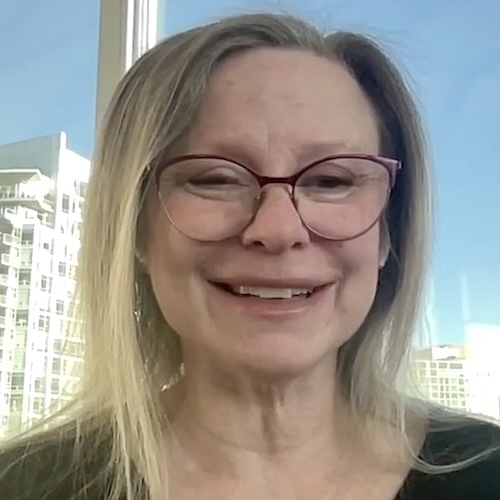
Dana describes feeling stunned and in denial. Her first thought was how to share this news with her children. Although she has lived with bipolar disorder and bouts of depression and anxiety for decades, the diagnosis pushed her mental health to fragile territory. Despite these struggles, she leans on her psychiatrist, counseling services, and her strong support network to help her cope.
Family remains the heart of Dana’s identity and hope. Her husband has been an unwavering source of comfort, stepping in when parenting feels overwhelming. Her children, though deeply impacted, continue to surround her with love. Even the family dog brings daily joy and grounding.
Dana’s treatment plan includes targeted therapy, hormone blockers for her estrogen-positive cancer, monthly hormone therapy injections, and quarterly bone infusions to protect her bones. She has CT scans every three months and occasionally undergoes MRI scans for monitoring. While side effects like nausea, fatigue, and emotional instability are challenging, her scans have shown tumor shrinkage and mostly stable disease. This stability gives her space to focus on her mental health and the relationships that sustain her.
Dana shares her story to remind others with cancer, especially those who also live with mental health challenges, that seeking help is vital. She urges people not to isolate, to accept both practical and emotional support, and to advocate for their needs. Her message: embracing mental health care is as essential as medical treatment.
Watch Dana’s video and browse the transcript of her interview for more on:
- Her honest take on living with stage 4 invasive ductal carcinoma breast cancer and mental health challenges
- What a small, painless bump revealed about Dana’s health
- How family support and therapy became her lifelines
- Coping with invasive ductal carcinoma breast cancer beyond the physical impact
- Parenting, hope, and emotional resilience from a psychologist’s perspective
- Name: Dana S.
- Diagnosis:
- IDC (Invasive Ductal Carcinoma) Breast Cancer
- Age at Diagnosis:
- 51
- Staging:
- Stage 4
- Symptom:
- Appearance of large lump in left armpit
- Treatments:
- Targeted therapy
- Hormone blockers
- Bone infusions
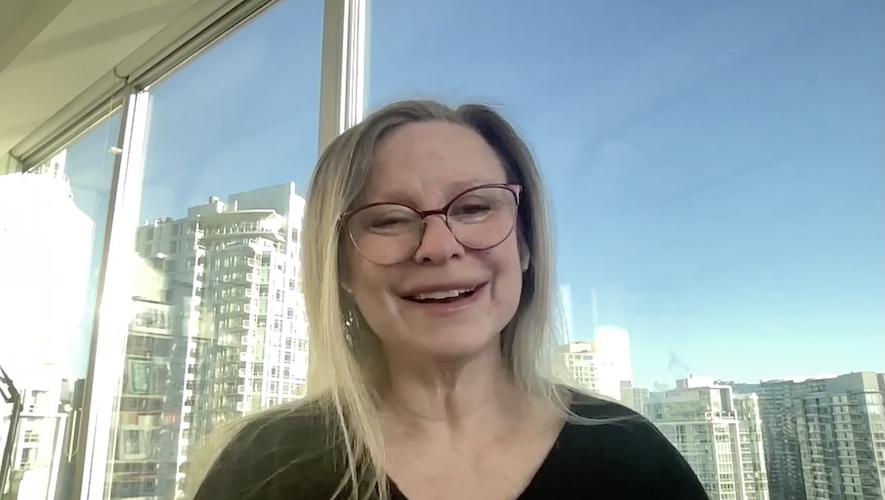
This interview has been edited for clarity and length. This is not medical advice. Please consult with your healthcare provider to make informed treatment decisions.
The views and opinions expressed in this interview do not necessarily reflect those of The Patient Story.
Hi. My name is Dana
I have stage 4 breast cancer, and I am blessed to live with my husband and two biological children and a wonderful dog. And I was originally trained as a clinical psychologist.
When I first noticed something was wrong
I was initially diagnosed with invasive ductal carcinoma, or IDC, breast cancer in 2020. It was discovered through my yearly mammogram. I had a biopsy, and it was found to be cancer. It was stage one. I had radiation. I had a lumpectomy at the end. You know, I sometimes forget about that time now.
Come a few years later. I had no real symptoms, but I had this bump under my arm, and it didn’t hurt. It just existed there, and I ignored it. I completely ignored it. I thought it was maybe an ingrown hair, so I thought, well, this will reduce in size over time. I’m not worried about it, but it continued to exist, and I continued to ignore it to the point where my husband was saying, “You need to get that looked at.” I rolled my eyes. “Okay,” I said. But I still put it off. One day, I was doing sit-ups, and I felt some lumps under my chin, and then he said, “Go to the doctor.” So I went to the doctor and I said, “I have these lumps under my chin. I think they’re swollen lymph nodes.” He said, “I don’t feel anything off the cuff.”
I said, “You know, I have this bump under my arm.” And he felt it and said, “You need to get checked out immediately.”
People nagged me to get it looked at; it didn’t even occur to me that that could be a lymph node. My father was a pharmacologist. My mother taught microbiology and immunology. So we had a lot of science, a lot of medical knowledge growing up. So I would think that I would recognize a swollen lymph node, but I didn’t. And I wonder if, unconsciously, I put that to the side because I wonder if there’s a part of me that knew that there’s something untoward happening here. And I’m very upset to this day that I ignored it.
What happened next
Therein lies the cascade of appointments and whatnot and biopsies, which turned out to be cancer. Within the lymph node, I still wasn’t that worried. It was still at a low stage. And then I had a full-body MRI. And for some reason, I was able to get the results of that without having anyone speak to me.
I was sitting on the floor in my bedroom, and I remember sucking in my breath, and I said to my husband, “Oh my God, there are liver metastases, bone metastases, lymph node metastases. This is stage 4.” And of course, you know, I’m not a doctor and I can’t officially diagnose that. But that seemed pretty clear to me. And when I talked to a doctor who has since become my oncologist, he said, “Yeah, this is stage 4. We need to get you on treatment immediately.“
The moment everything changed
This kind of stunned silence. I guess I would call it denial. I didn’t register it. I didn’t feel it viscerally that this is stage 4 breast cancer.
My mother had stage 1 breast cancer, and it devastated the family when she was diagnosed decades ago.
My first thought when I heard that I had cancer was, “Oh, my God, how am I going to tell this to my kids?” And I just think a part of me is still in denial. I haven’t really cried about it. I’ve just been in this zone of how do we cope? Next, I would like to cry about it.
My treatment plan
Now that I look back, I think I’ve been very lucky. I’m on targeted therapy and a hormone blocker, because my cancer is estrogen-positive. But progesterone-negative doesn’t really make that much of a difference. Just a little. So, my targeted therapy and hormone blocker. To assist in that, I take an injection of Zoladex hormone therapy monthly. And every three months, I take Zometa for my bones.
I’ve been incredibly lucky. I have a lot of side effects. But they’re atypical.
I have nausea. I become very sleepy very easily. But I think the most profound side effect is that it has impacted my psychology greatly. The combination of my chemotherapies seems to make me very psychologically scattered and unsteady, and running through the gamut of emotions at a moment’s notice. It’s very scary because I don’t feel particularly stable because of that. And recently, it’s been quite profound. So my oncologist is speaking with the associated patient counseling unit to figure out what’s wrong.
The plan is that I get CT scans every three months. I’m getting a brain MRI just to rule out any kind of metastasis, considering my really quick emotional status, if you want to call it that. And then I’m indefinitely on my targeted therapy and hormone blockers, because so far they’ve worked.
My CT scans show that there’s been a shrinkage of all of my tumors. I’m not “no evidence of disease,” but so far, everything is primarily stable. Maybe a tiny bit of progression. But my oncologist says that this is nothing to worry about. And so far, there’s stability. Thank goodness.
How I’m handling my mental health
Before my diagnosis, I dealt with mental health issues for the past 20, 30 years or so. But they stabilized enough to allow me to go to graduate school and earn my doctorate, which was exceedingly interesting. Why do I mention that? Because once I transitioned into my career, my mental health began to really take a hit.
I really, really struggled with that, and tried to function, having children as best I could. Amazingly, I had left my job at a clinic because I felt it. I felt the compensation coming on, and it was bad. I had to quit my job. But amazingly, my psychiatrist put me on a different medication, and it worked. One shift in a medication, and it worked. And I felt great. I felt, quote unquote, normal. I was able to function. I didn’t have any scary thoughts. But a few weeks later, I was diagnosed with cancer, so I only had that break for a few weeks, and then I had the stage 4 diagnosis.
Since then, I’ve been really cool about this and coping and functioning with my family, not isolating myself, and reaching out to people whom I call friends. The downside is that as of a few weeks ago, I had this, what I call a bomb cyclone of emotional energy and wanting to harm myself. And didn’t know where any of this came from. It just hit. I was missing conversations. I knew I couldn’t remember things that I should remember. It’s terrifying. It’s just now coming down a little bit with some medication.
I don’t know if this is related to my past years of mental health issues. But what I do know is that I’ve been reaching out for help all over the place because I cannot live like this. I have to fight cancer, and it’s really hard to fight mental health on top of that.
So it’s a huge juggle, a huge juggle.
Where I find support
First and foremost, my family supports me. My husband, in particular, has been incredible. I feel particularly blessed to have him in my life and to help guide me through this when I don’t feel like I have the capacity to care for my children. It has affected them profoundly, sometimes in really trying and difficult ways. But still, through that, they’ve been incredibly supportive.
I have looked to my newfound friends’ big support just these past few weeks when everything kind of decompensated. My oncologist has hooked me up with the psychiatry department, which in turn has hooked me up with the patient counseling unit within my cancer center. You know, I can’t ask for any more support than that.
I want to have hope
I feel like there have been times when I haven’t had hope, even though I’ve never really felt physiologically that I’ve had cancer. I just haven’t felt anything. So there are times when I feel like I want to have hope.
Will I ever begin to feel something? Will that be my downhill slide? I don’t know. But what I do know is that when I look at my family each day and our dog and all the help I’ve had, it gives me the hope I need when I can’t generate it myself.
Why I share my story
I wanted to share my story because I wanted to shed some light on the intersection between cancer and mental illness. I think, at least in my experience, they’re inextricably bound. And we can look at the difficulties, the fears, the loss of hope, even.
And then if you already have mental illness, such as I do with bipolar two disorder and features of depression and anxiety, you put that on top of your experiences, which are profoundly different than what I might have expected, which was just to deal with the fears and the hopes that you have. But I already have these issues on top of it. And so I’m trying to give voice to reach out, get the mental health help that you need to have the capacity to cope with a really scary diagnosis.
My biggest advice to people going through cancer
Do not isolate. I tend to isolate myself, frankly. Don’t do that. There is help. But you have to advocate for yourself and have your loved ones and friends help advocate for you, to give you the confidence to be able to reach out and ask for the help you need.
I got help through psychiatry and patient counseling. It’s been invaluable. To begin to tease these pieces apart of mental health and cancer.
Don’t sit there by yourself. Reach out to the people you love and the help that they can provide.
If you are struggling or feel overwhelmed, you’re not alone.
Support is available:
988 Suicide & Crisis Lifeline (US): Call or text 988 – 24/7 free and confidential
National Alliance on Mental Illness (NAMI): 1-800-950-NAMI (6264) or nami.org/help
Crisis Text Line: Text HELLO to 741741
Please take care as you continue reading.

Inspired by Dana's story?
Share your story, too!
More IDC Breast Cancer Stories
Amelia L., IDC, Stage 1, ER/PR+, HER2-
Symptom: Lump found during self breast exam
Treatments: TC chemotherapy; lumpectomy, double mastectomy, reconstruction; Tamoxifen
Rachel Y., IDC, Stage 1B
Symptoms: None; caught by delayed mammogram
Treatments: Double mastectomy, neoadjuvant chemotherapy, hormone therapy Tamoxifen
Rach D., IDC, Stage 2, Triple Positive
Symptom: Lump in right breast
Treatments: Neoadjuvant chemotherapy, double mastectomy, targeted therapy, hormone therapy
Caitlin J., IDC, Stage 2B, ER/PR+
Symptom: Lump found on breast
Treatments: Lumpectomy, AC/T chemotherapy, radiation, hormone therapy (Lupron & Anastrozole)
Joy R., IDC, Stage 2, Triple Negative
Symptom: Lump in breast
Treatments: Chemotherapy, double mastectomy, hysterectomy
